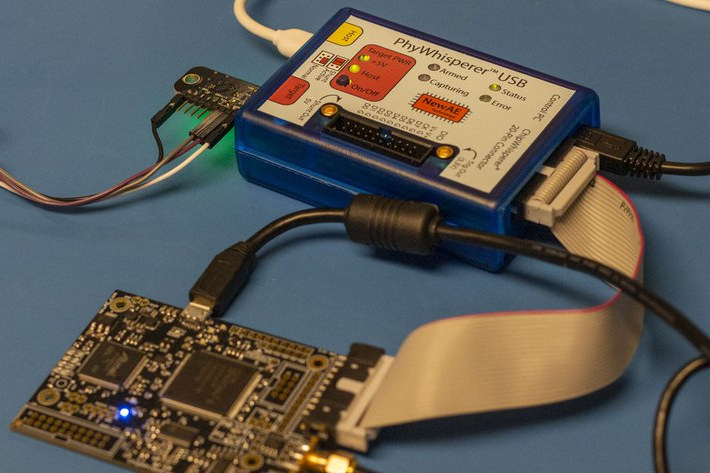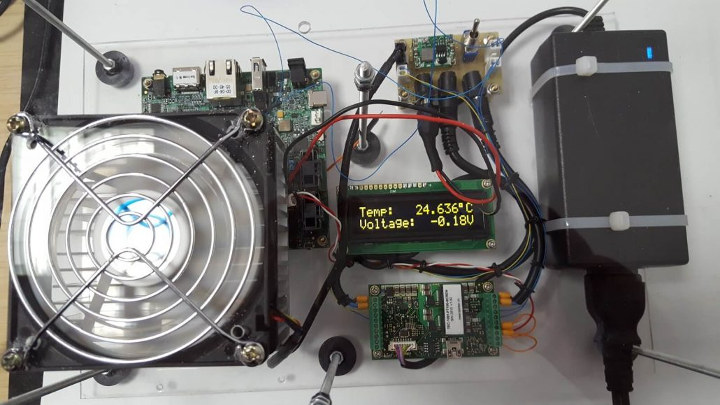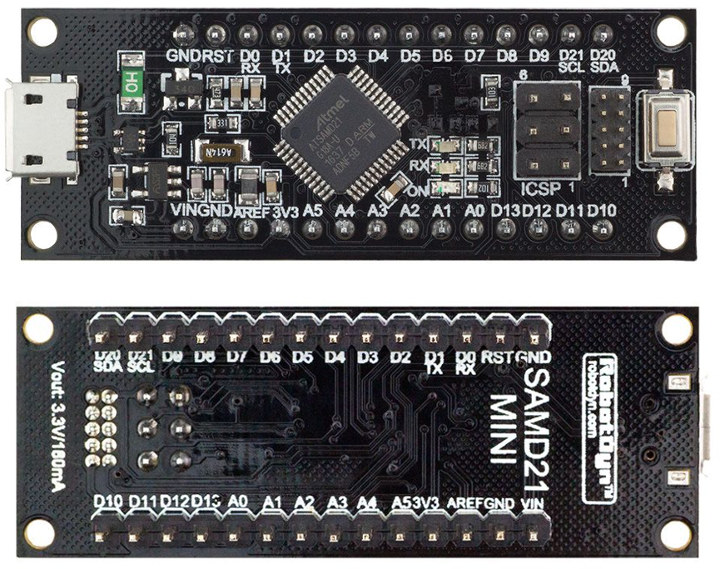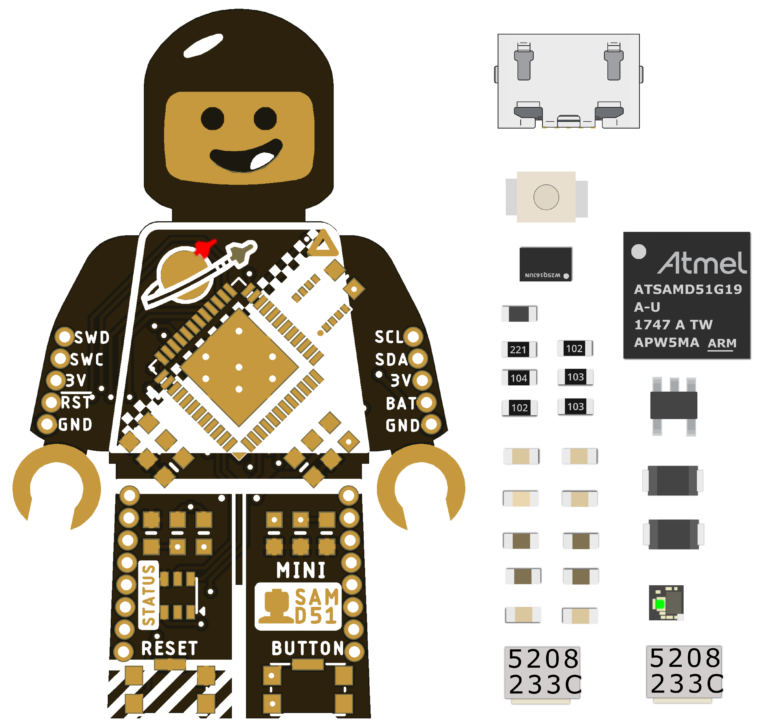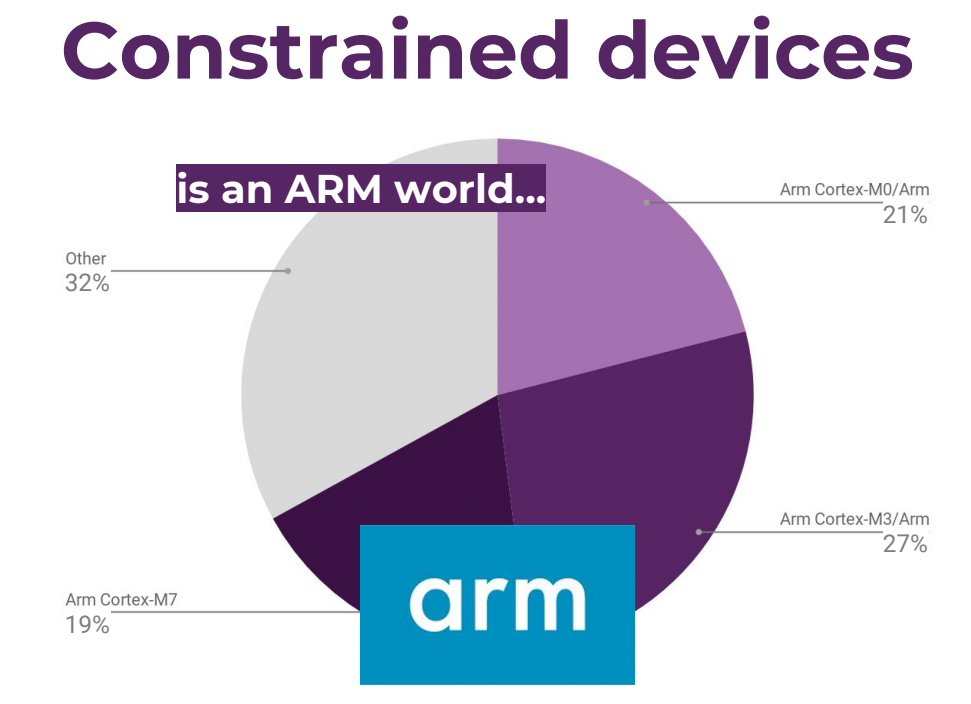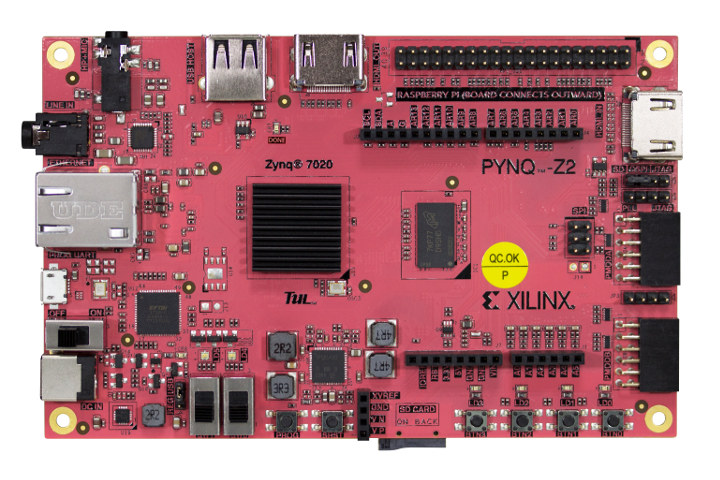PhyWhisperer-USB is a hardware USB sniffer & triggering platform that allows users to test the security of USB devices using side-channel power analysis and fault injection using a Python 3 interface, beside simply capturing packets. This has become especially important now as some USB devices include Bitcoin Wallets, FIDO2 keys, and encrypted drives with valuable data. PhyWhisperer-USB hardware specifications: FPGA – Xilinx Spartan 7S15 with 12,800 logic cells USB USB 2.0 Low/Full/High Speed mode PC connection – Micro-USB 2.0 HS port Host connection – Micro-USB port Target connection – USB-A female connector Trigger pattern – 1 – 64 bytes with mask Trigger delay – 0 – 1048576 cycles of 240 MHz internal clock derived from USB clock USB sniffer FIFO – 8192 bytes (FPGA block RAM, adjustable depending on FPGA utilization) Expansion – Spare digital I/O: 8 data pins, 1 clock pin routed to FPGA (on front panel) Clock output […]
Linaro Connect San Diego 2019 Schedule – IoT, AI, Optimizations, Compilers and More
Linaro has recently released the full schedule of Linaro Connect San Diego 2019 that will take place on September 23-27. Even if you can’t attend, it’s always interested to check out the schedule to find out what interesting work is done on Arm Linux, Zephyr OS, and so on. So I’ve created my own virtual schedule with some of the most relevant and interesting sessions of the five-day event. Monday, September 23 14:00 – 14:25 – SAN19-101 Thermal Governors: How to pick the right one by Keerthy Jagadeesh, Software Engineer, Texas Instruments With higher Gigahertz and multiple cores packed in a SoC the need for thermal management for Arm based SoCs gets more and more critical. Thermal governors that define the policy for thermal management play a pivotal role in ensuring thermal safety of the device. Choosing the right one ensures the device performs optimally with in the thermal budget. […]
BayLibre TPMP Lowers the Cost and Time of PVT Characterization
If you don’t quite understand the title of this post, don’t worry that’s normal! So let me explains. TPMP stands for Thermo-regulated Power Measurement Platform, and PVT (Power, Voltage, Temperature) characterization is a step in semiconductor manufacturing that involves testing wafers with various voltages, clock frequencies, and temperatures – known as Operating Performance Points (OPP) – to see how the properties of the wafer change. The equipment required to perform this characterization is usually very expensive, and the process takes time. So BayLibre was tasked by one of their customers to automate the process, and find a lower cost solution. That’s how BayLibre TPMP came to life. The TPMP is comprised of six main hardware components in order to measure NXP i.MX8 processor die-temperature: Peltier element Meerstetter TEC-1091 Peltier controller Fan Heatsink temperature sensor Chip external temperature sensor LCD display to monitor temperature, voltage, and current. The TEC-1091 chip controls […]
SAMD21 MINI / Wemos D1 SAMD21 M0 Mini Development Board Sells for $7 and Up
Microchip / Atmel SAMD21 Arm Cortex-M0+ microcontroller has been around for several years, and we covered various boards based on the MCU include the official Arduino Zero launched in 2014, Arduino Tian, and the tiny SAM 15×15 or Exen Proto boards among others. Another SAMD21 development board has now shown up on Electrodragon website: SAMD21 Mini Development Board sold for $14.50 on the website, but you’ll also find it, under the RobotDyn or Wemos brand on Aliexpress for $7.05 and up. SAMD21 Mini Board / WeMos D1 SAMD21 M0 Mini Specifications: MCU – Microchip ATSAMD21G18 Arm Cortex-M0+ microcontroller @ 48 MHz with 32KB data RAM, 256KB flash USB – 1x micro USB port for power and programming Expansion 2x 14-pin headers with 19x digital I/O (including 12x PWM), 6x Analog I/O 3.3V logic level Programming – 6-pin ISCP connector Misc – Power, Tx and Rx LED’s, button Power Supply Input […]
LEGO Minifigure shaped Mini SAM M4 Board Supports CircuitPython and Arduino
If you are a fan of the Lego movie. Perhaps you have always wanted to use Lego bricks to make something innovative and techy. Then the Mini SAM M4 board is here for you, as it is a LEGO minifigure-sized development board. Additionally, the design and layout of the board is based around the classic 1980’s ‘spaceman’, and is made by Ben Shockley. Although the board is very small, it has a lot of wonderful features. It comes with an analog reference decoupling/filtering capacitors. Also, it has an analog to digital ferrite bead, as well as a debounce circuitry for the reset and user buttons. Furthermore, the board’s software and firmware can be developed using CircuitPython or Arduino. The development board is either based on the Microchip SAMD51G 48-Pin 32-Bit ARM – Cortex M4F MCU (Mini SAM M4), or features the Microchip SAMD21G 48-Pin 32-Bit ARM Cortex -M0+ MCU running […]
DJI Launches RoboMaster S1 Education Robot
DJI is one of the world’s leading technology companies. They specialize in the manufacturing of high-end drones and other innovative and creative techs. Recently they announced the launch of their new product, Robomaster S1 education robot. The game-changing educational robot uses innovative hands-on learning, this makes it fun and smart. Furthermore, the new S1, which is a lot different from what DJI makes, is packed with a lot of features. This educational robot allows users to learn and understand science, math, physics, programming, and more. Although the official selling price of the S1 is $499, most resellers are expecting to sell it at a higher price. Resellers will sell it at about $699, which is a big difference from the official price. When CNX Software spoke to one of the resellers, they mentioned the reason for the high price, stating that “suppliers did not provide the RoboMaster S1’s cost” so […]
Eclipse IoT Survey Report Reveals Arm & Linux Dominate, Security Concerns
The Eclipse IoT Working Group has just released a report asking the global IoT developer community to share their perceptions, requirements, and priorities. And with over 1,700 individuals taking the survey between February and March 2019, the key findings are interesting: IoT drives real-world, commercial outcomes today. 65% of respondents are currently working on IoT projects professionally or will be in the next 18 months. IoT developers mostly use C, C++, Java, JavaScript, and Python AWS, Azure, and GCP are the leading IoT cloud platforms Top three industry focus areas remain the same as last year: IoT Platforms, Home Automation, and Industrial Automation / IIoT. MQTT remains the dominant IoT communication protocol leveraged by developers The Eclipse Desktop IDE is the leading IDE for building IoT applications The last point may be slightly biased because the survey was done by the Eclipse IoT Working Group, so most respondents were already […]
PYNQ-Z2 Python FPGA Board Adds Raspberry Pi Header, 24-Bit Audio Codec
PYNQ-Z1 is a board by Digilent powered by Xilinx Zynq-7020 Arm Cortex-A9 + FPGA SoC that’s designed specifically for PYNQ, an open-source project that aims to ease the design of embedded systems with Xilinx Zynq Systems on Chips (SoCs) by leveraging the Python language and libraries. PYNQ-Z2 is very similar to PYNQ-Z1, but it’s made by Taiwanese company TUL, and the board is slightly longer to allow for an extra 40-pin Raspberry Pi compatible header, and Analog Devices ADAU1761 24-bit audio codec. PYNQ-Z2 board specifications: SoC – Xilinx Zynq-7020 (XC7Z020-1CLG400C) dual core Arm Cortex-A9 processor @ 650 MHz with FPGA with 13,300 logic slices, each with four 6-input LUTs and 8 flip-flops System Memory – 512MB DDR3 Storage – Micro SD card slot, 16MB QSPI Flash with factory programmed globally unique identifier (48-bit EUI-48/64 compatible). Video – HDMI In and HDMI Out Audio – Mic in, Line Out ADAU1761 codec […]


